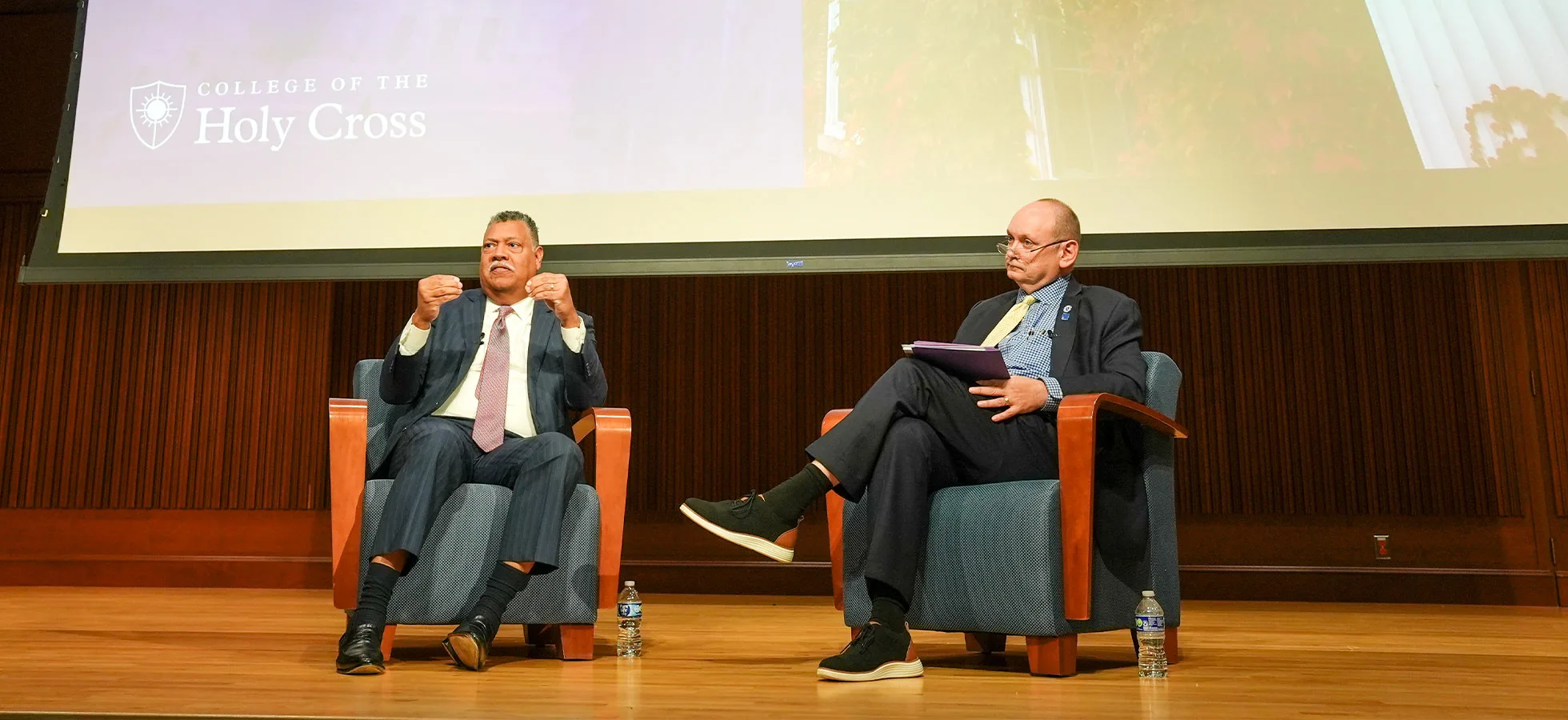President’s Lecture Series Welcomes Vincent Rougeau, President of the College of the Holy Cross

To begin a series of President’s Lectures for this academic year, Assumption President Greg Weiner welcomed the president of the College of the Holy Cross, Vincent Rougeau, to speak to the Assumption community about the importance of fostering diverse communities as Catholic institutions.
In the lecture, titled “Seeing God in Others: Fostering Diverse and Democratic Communities as Mission-Driven Catholic Institutions,” Rougeau spoke about how Catholic institutions have an obligation to help create diverse and inclusive communities on campuses through the principles of Catholic Social Teaching (CST).
These principles: dignity of the human person, the person in community, preferential option for the poor, and the promotion of the common good, along with each institution’s guiding mission, Rougeau said, are key to building these communities.
However, Rougeau said, society tends to be individualistic, in direct contrast to CST. This, he emphasized, is the reason institutions must recommit themselves to diversity and belonging.
“There is no pursuit of a dignified life separate from community. Strengthening our community and welcoming all members enhances our lives and our learning. This is inclusion and belonging in its most sincere form,” he said. “We are building the community through the diversity that God has given us, and we are embracing that and making it real. We are doing the hard work of recognizing God in other people by saying we’re going to come together and form community across those differences.”
“We forget that we are constantly seeking divine connection,” said Rougeau. “If we turn back to the way of seeking those connections within other human beings in meaningful ways, we might actually get some real value from that. Connection and community are necessary for this social and political arrangement to flourish and to function.”
Rougeau encouraged institutions to embrace CST, diversity, inclusion, and belonging in campus communities to help create meaningful connections that are essential to the human experience.
“At Catholic institutions, we must really hold ourselves to a higher standard. We really must work in ways that match our values, our religious commitments, and our beliefs and that really show that we are people of the kind of faith we claim to hold,” he said. “We are, we will, and we do get backlash from living our values. But this is not the moment to retreat. Our missions demand steadfast commitment and willingness to break with the cause of popular opinion, to break with the practice of division and anger, and to reject ideological approaches to complex issues.”
After Rougeau spoke to the audience, Weiner asked a series of questions relating to building diverse communities at colleges today, including about how to navigate diversity of thought in democratic societies. Rougeau encouraged respect and engagement with those with differing perspectives, opening dialogues that may strengthen communities and deepen understanding.
“What we’re trying to do is open up a space where people can really be open to receiving difference in ways that might challenge them, might even change them, because there is something larger – common good – that they’re aspiring to save, and to create, and to strengthen,” said Rougeau. “When we build relationships across differences in deep and meaningful ways, we’re focused on the humanity of the other and the things that we share and we can learn from one another. Those relationships are profound, and change us, and allow us to revise some of our own assumptions about the world and to start building something even stronger.”
